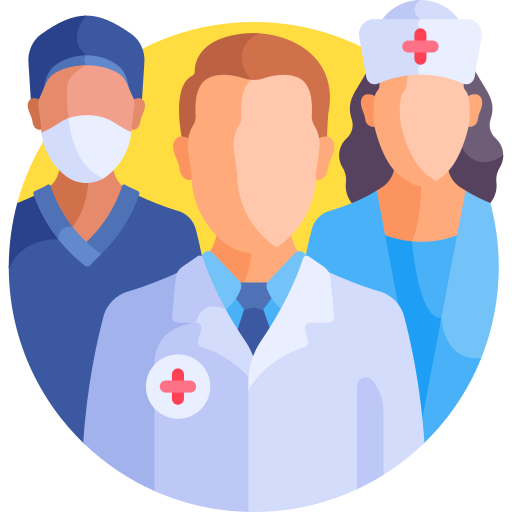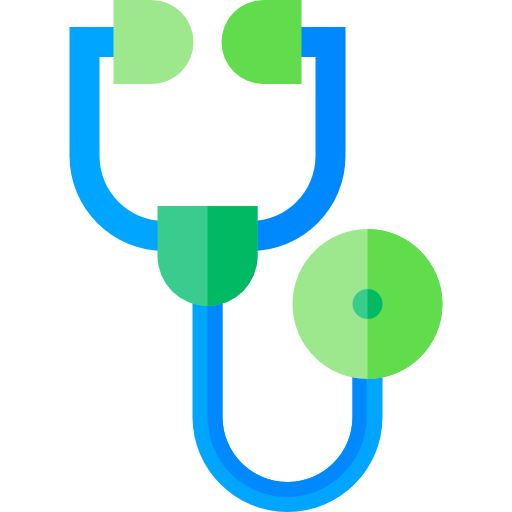

College of Health Sciences

About Amoud University College of Health Science
Amoud University College of Health Sciences is a leading institution in health education in the Somali-speaking regions of the Horn. They aim to produce competent health professionals equipped to address health issues. The institution exposes students to various training sites to engage with the communities they will serve. Amoud University College of Health Sciences covers various academic programs, including Medicine, Nursing, Dentistry, Lab Technology, Pharmacy, and Public Health. They emphasize the importance of continued self-learning and research in any chosen area of specialization. Amoud University College of Health Sciences engages in community-based services, research activities, and strengthening governance and leadership. They have a committee to ensure the quality of their programs and services.
Message from the Principle
Welcome to Amoud University College of Health Sciences, the trailblazer in health education in the Somali-speaking regions of the Horn. Our mission is to cultivate health professionals that can effectively address the pressing health issues in our nation. We strive to arm them with the necessary knowledge, skills, and attitudes for health service delivery, emphasizing lifelong learning, methodical thinking, and collaboration, application of technology in medical science, efficient communication, and community leadership.
Our commitment extends beyond merely increasing the count of health professionals. We also aim to enhance the quality and relevance of our education to meet the health needs of the population. Our focus lies in the sustainable development of our institution to produce the optimal quantity and mix of healthcare professionals. Moreover, we prepare our graduates to tackle future healthcare challenges. Reconstructing health systems in a country impacted by civil unrest is an intimidating task. It’s a challenge to convey to policymakers the crucial role health professionals can play in broader state-building processes. Every country requires bespoke solutions to revive their healthcare provisions and recreate an environment conducive to health services.
Our curriculum is designed to be both community-focused and future-oriented, reflecting the real-world environments our graduates will enter. We are amidst a dynamic growth phase, with numerous construction projects in motion or in the planning stages. Our greatest strengths lie in our vibrant communities, our committed teaching and administrative staff, and our students who hail from diverse backgrounds and possess remarkable academic achievements.
We expose our students to various training sites, offering them the chance to engage with the communities they will serve post-graduation. Our graduates are equipped to serve anywhere across the nation and are currently present in areas of highest need. They have made significant contributions to improving health service provision throughout every region of Somaliland. We consistently assess our educational programs to uphold our top-ranking position in the fields of medicine, dentistry, and allied health sciences. Our primary goal is to nurture competent health professionals who are not only proficient in their skills but also exceptional communicators, problem-solvers, patient advocates, and confident individuals.
Prof. Said Ahmed Walhad
Principal,
Amoud University College of Health Sciences
About the College
Mission
The mission of Amoud University College of Health Sciences is to contribute to knowledge and produce graduates equipped with practical and intellectual skills to meet the needs of current and future Somaliland/Somali communities. The College is committed to ensuring that students acquire knowledge, skills, and attitudes using modalities that encourage active learning within the context in which they will later function as health professionals.
Vision
Amoud University College of Health Sciences envisions being an exceptional training institution for Medicine, Nursing, Dentistry, Lab Technology, Pharmacy, and Public Health, with a holistic approach to healthcare, research, and training.
Objectives
The objectives of Amoud University College of Health Sciences are to:
- Generate qualified and appropriately trained health professionals.
- Ensure a level of education based on international standards to optimize patient care and advance the health status of the people.
- Produce an adequate number of qualified health professionals. – Provide continuing medical education in various disciplines.
- Contribute to national health system development efforts and collectively plan with the MOH and development partners on human resource development initiatives.
Academic Programs
- Undergraduate Programs
- Postgraduate Programs
- Diploma Programs
Bachelor Of Medicine And Bachelor Of Surgery (MBBS)
Established in 2000-2001, the School of Medicine was the first of its kind in Somaliland, offering a five-year Bachelor of Medicine and Surgery (MBBS). The curriculum evolved to meet modern healthcare delivery demands and was influenced by visits to medical schools in Sudan and Egypt, sponsored by WHO.
Bachelor Of Science In Nursing (BSN)
The School of Nursing, Midwifery and Anesthetic Nursing was established in 2005 by Faduma Haji Abubakar. She was driven to address the shortage of skilled nurses and midwives in Borama, Somalia. The school offers a four-year Baccalaureate Nursing Program at Amoud University and aims to prepare graduates to be effective nurses in hospitals and communities, and to contribute to nursing education, administration, and research.
Bachelor Of Dental Surgery (BDS)
In 2006, Amoud University partnered with THET, an international NGO, to improve curriculum delivery at Amoud Medical School. Dr. Abdirashid Omer Sheikh Ibrahim established a dental clinic in Borama in March 2007 and, after a year of practice, founded Amoud College of Health Science’s School of Dentistry in 2008-2009. Amoud Dental aims for professional excellence and to produce highly qualified dentists for local communities through community-oriented, student-centered curricula.
Bachelor Of Pharmacy (Pharm)
The School of Pharmacy, established in 2009-2010, trains pharmacists and revitalizes Somaliland’s post-war pharmaceutical system. The program is four years long, offering a Bachelor of Pharmacy degree. Somaliland’s pharmaceutical sector is underdeveloped, relying on aid organizations and private pharmacies for drug supply. The community-focused curriculum includes comprehensive courses and active learning, regularly reviewed by the committee. The School collaborates with other ACHS schools, while a dedicated laboratory prepares graduates for their future roles.
Bachelor Of Medical Laboratory Technology (BMLT)
The School of Laboratory Technology trains skilled medical technologists. Graduates achieve a Bachelor’s in Medical Laboratory Technology with a blend of theoretical and practical knowledge. The School aims to address challenges in laboratory infrastructure by creating skilled personnel who emphasize self-learning and community-oriented approaches. They conduct research in clinical science education and methods for delivering health care.
Bachelor Of Public Health
Amoud University College of Health Sciences planned to start a School of Public Health in 2010-2011 but postponed due to limited expertise. In 2012-2013, they launched the School of Public Health and Nutrition with a 4-year Bachelor program to tackle public health challenges. The curriculum adapts to the country’s needs to produce skilled public health professionals and nutritionists. The graduates are already impacting Somaliland’s health service provision.
Bachelor Of Midwifery
The School of Nursing, Midwifery and Anesthetic Nursing was established in 2005 by Faduma Haji Abubakar. She was driven to address the shortage of skilled nurses and midwives in Borama, Somalia. The school offers a four-year Baccalaureate Nursing Program at Amoud University and aims to prepare graduates to be effective nurses in hospitals and communities, and to contribute to nursing education, administration, and research.
Bachelor Of Nursing Anesthesia
The School of Nursing, Midwifery and Anesthetic Nursing was established in 2005 by Faduma Haji Abubakar. She was driven to address the shortage of skilled nurses and midwives in Borama, Somalia. The school offers a four-year Baccalaureate Nursing Program at Amoud University and aims to prepare graduates to be effective nurses in hospitals and communities, and to contribute to nursing education, administration, and research.
Bachelor Of Science Nutrition
Amoud University College of Health Sciences planned to start a School of Public Health in 2010-2011 but postponed due to limited expertise. In 2012-2013, they launched the School of Public Health and Nutrition with a 4-year Bachelor program to tackle public health challenges. The curriculum adapts to the country’s needs to produce skilled public health professionals and nutritionists. The graduates are already impacting Somaliland’s health service provision.
Master Of Public Health
Master Of Family Medicine
Master Of Internal Medicine
Master Of Surgery
Master Of Gyn/Obs
Master Of Pediatrics
Master Of Pediatric Nursing
Master Of Microbiology
Master Of Nutrition
Master Of PHE
Diploma of Midwifery
Diploma of Professional Health Education
Certificate of Health Professional Education
Postgraduate Diploma of Endodontic Dentistry
Educational Development Center (EDC)
Background
Amoud University’s College of Health Sciences recognizes the importance of teaching staff having a background in Health Professional Education to effectively deliver and update the curriculum using new strategies, tools, and technology. To achieve this, the institution established an Educational Development Center in 2014 to strengthen local capacity building of teaching and administration staff. The center aims to become a center of excellence in training health leaders at local, regional, and global levels. Initially, the EDC faced challenges as staff members were unfamiliar with its purpose, but as they were exposed to HPE training, their attitudes changed and now those equipped with HPE knowledge and MHPE graduates successfully run the department. The center facilitates the exchange of resources and network connections with other health training institutions to produce competent healthcare professionals and improve patient care in Somaliland.
